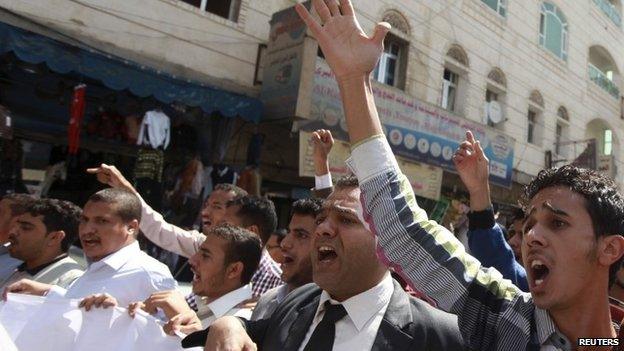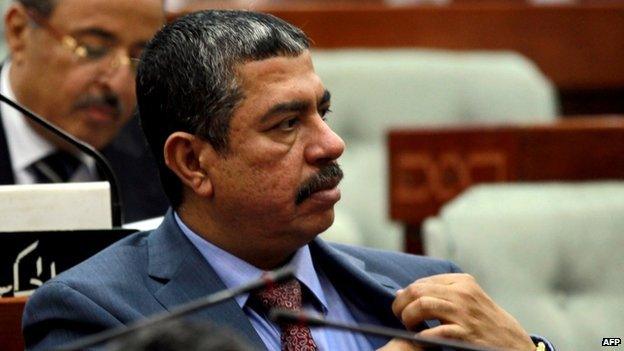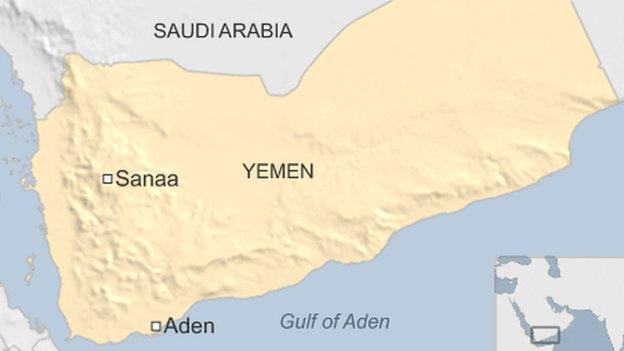Yemen Houthi Shia rebels join new cabinet
- Published

There are hopes the announcement will end weeks of unrest and uncertainty in Yemen
A new cabinet has been formed in Yemen, in an effort to defuse mounting political tensions, state media say.
The 24-strong administration, headed by Prime Minister-Designate Khalid Bahah, includes Shia Houthi rebels who seized the capital Sanaa in September.
Rebel leaders had said they would withdraw their fighters from Sanaa once a cabinet was formed.
The move came as the UN imposed sanctions on Yemen's former president and two leading Houthis.
Members of the Security Council said that ex-President Ali Abdallah Saleh, who stood down in 2012, and the two rebel commanders had threatened the stability of the country.
In a unanimous decision, the 15-member council ordered that the trio be subject to an asset freeze and global travel ban.

Yemen's former UN envoy Khaled Bahah is to head the new cabinet
Mr Saleh has allied with the Houthis in their bid to seize the capital.
Yemen has faced growing instability since the start of anti-government protests in 2011, which resulted in Mr Saleh standing down in 2012.
Since then ministers have battled a growing al-Qaeda presence, often with the help of US drone strikes.
Friday's announcement of a new cabinet ended two weeks of deadlock among Yemen's political factions.
Under a UN-brokered deal after the Houthis entered Sanaa on 21 September, President Abdrabbuh Mansour Hadi agreed to form a "technocratic" government and appoint advisers nominated by the rebels and also members of a separatist movement in the south.
Southern separatists have long complained of being marginalised by the central government.
Meanwhile the Houthi rebels, who belong to the minority Zaidi Shia community, have staged periodic uprisings since 2004 to win greater autonomy for their northern heartlands.
Friday's developments came as security forces said they had killed a senior al-Qaeda leader in the south of the country.
Turki al-Assiri, a Saudi national also known as Marwan al-Mekki, was killed on Thursday while trying to resist arrest, officials said.
Al-Assiri was a commander of al-Qaeda in the Arabian Peninsula (AQAP), a regional affiliate of the fundamentalist group founded by Osama Bin Laden.
Correspondents say his death is a significant blow for the organisation, which had vowed to confront the Houthi rebels after they overran Sanaa.
AQAP said it was behind a suicide bomb attack which struck a rally held by Houthi supporters in the capital on 9 October, killing 47 people.
